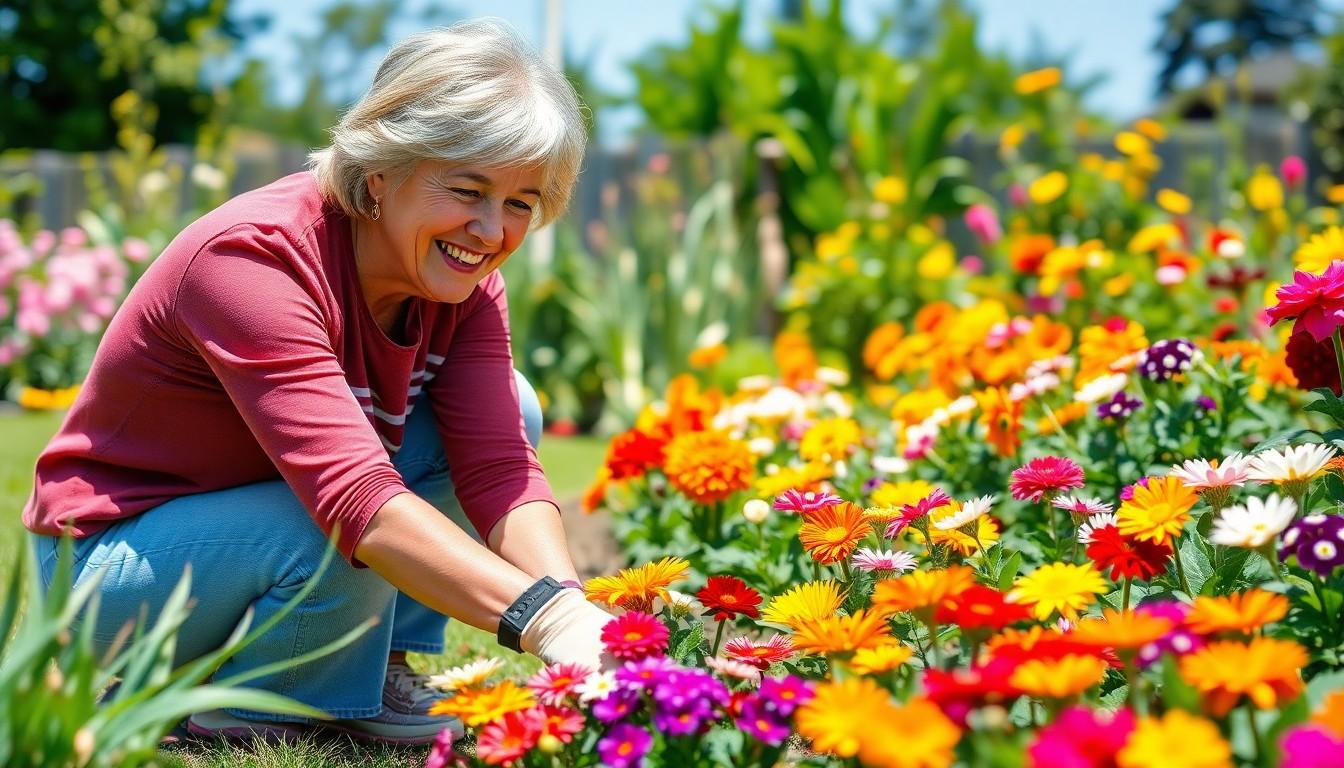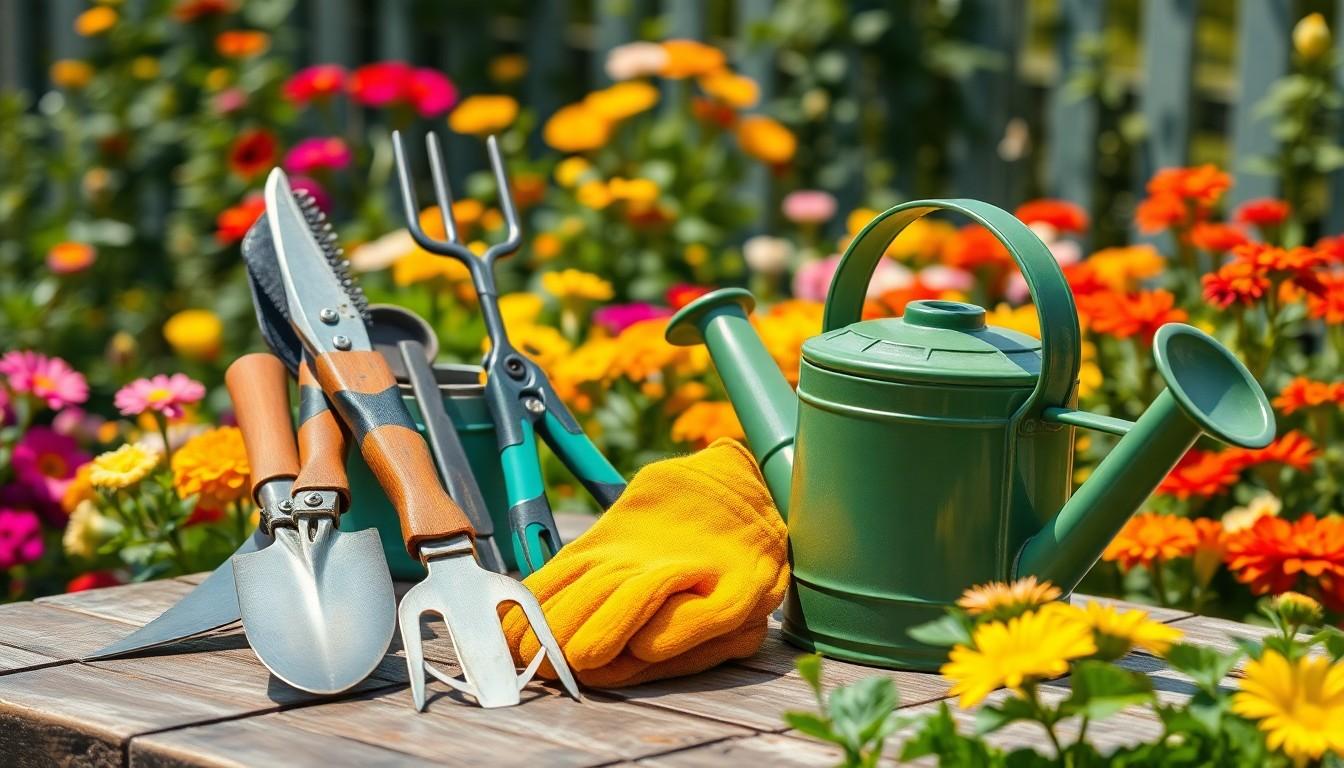Phone:
(701)814-6992
Physical address:
6296 Donnelly Plaza
Ratkeville, Bahamas.

Imagine stepping into a vibrant world where colors burst and fragrances dance in the air. Flower gardening isn’t just a pastime; it’s a delightful escape from the mundane. Whether you’re a seasoned pro or a curious newbie, cultivating blooms can bring joy and a splash of personality to any space.
Flower gardening encompasses the practice of cultivating flowering plants for aesthetic and functional purposes. This hobby brings together nature and creativity, allowing individuals to design vibrant outdoor spaces.
Flower gardening involves planting and nurturing a variety of flowering plants in designated areas. These gardens can range from small containers on a balcony to expansive landscapes in backyards. Individuals often select blooms based on color, fragrance, and seasonal appeal, creating dynamic environments. Knowledge of native plants enhances success, supporting local ecosystems. Planning and preparation play key roles, ensuring soil quality and proper drainage.
Flower gardening provides numerous advantages for both mental and physical well-being. Engaging in this activity reduces stress, improves mood, and fosters a sense of accomplishment. Exposure to outdoor environments boosts vitamin D levels, contributing to overall health. Additionally, flower gardens attract beneficial insects, supporting biodiversity. Social connections often form through shared gardening experiences, enhancing community ties. Finally, cultivating flowers encourages creativity, inspiring unique designs and arrangements.

Flower gardening requires a selection of tools to ensure successful planting and maintenance. Having the right equipment makes tasks easier and more efficient.
Selecting the right flowers involves understanding various types and their characteristics. Knowledge of annuals and perennials helps make informed choices for a garden’s design and maintenance.
Annuals bloom for one growing season. They offer vibrant colors and endless options for gardeners seeking instant impact. Some popular examples include petunias, marigolds, and zinnias. Perennials return year after year, establishing roots and offering sustainability. They may bloom less frequently but provide beauty with less effort over time. Examples include daylilies, peonies, and coneflowers. Balancing both types can create an appealing aesthetic while ensuring continual blooms.
Choosing flowers requires careful consideration of several factors. First, assess the climate and hardiness zone—this affects plant viability. Next, factor in sunlight exposure; certain flowers thrive in full sun while others prefer shade. Soil type plays a crucial role, as different species require specific pH and drainage conditions. Finally, consider maintenance levels; some flowers demand frequent care, while others are low-maintenance. Prioritizing these elements leads to a successful and flourishing flower garden.
Preparing the garden involves careful planning and groundwork. This ensures a successful flower gardening experience.
Start by testing soil for pH and nutrient levels. Amending soil with organic matter like compost improves fertility and drainage. Mixing in mulch can also enhance moisture retention. Tilling the soil to about 12 inches promotes aeration and root penetration. Removing rocks and weeds creates a clean slate for planting. Incorporate slow-release fertilizers into the soil to support healthy growth. Maintaining proper soil temperature encourages early sprouting for spring planted flowers.
Selecting the right location is critical for successful flower gardening. Most flowering plants thrive in areas with full sun, typically requiring 6 to 8 hours of sunlight daily. Providing protection from strong winds helps prevent damage to delicate blooms. Furthermore, ensuring proper spacing between plants allows for airflow and minimizes disease risk. The use of raised beds can improve drainage, which is essential for root health. Adequate watering, particularly during dry spells, retains soil moisture and supports plant development. Ultimately, these factors create an ideal environment for flowers to flourish.
Caring for flowers involves consistent attention and proper techniques to ensure growth and vitality. Specific practices shape a thriving garden, promoting beautiful blooms.
Effective watering techniques significantly impact flower health. Watering early in the morning or late in the afternoon reduces evaporation. A deep soaking encourages deeper root growth, which leads to stronger plants. Drip irrigation systems provide targeted moisture while conserving water. Frequent monitoring of soil moisture levels helps in determining when flowers require hydration. Flowers usually need about 1 inch of water per week, including rainfall. Adjustments in watering practices based on bloom types and seasonal climate ensure optimal development.
Pest and disease management safeguards flowers from potential threats. Regular inspections for signs of trouble, such as discoloration or wilting, allow for early intervention. Implementing organic methods, like introducing beneficial insects, reduces pest populations without harmful chemicals. Neem oil and insecticidal soap target specific pests, promoting plant health. Maintaining proper spacing and airflow around plants prevents fungal diseases. If diseases appear, promptly removing affected foliage can limit spread. Integrated pest management combines cultural, mechanical, and biological approaches to create a balanced ecosystem in the garden.
Flower gardening offers a rewarding journey filled with beauty and creativity. By choosing the right plants and tools anyone can transform their outdoor space into a vibrant sanctuary. The benefits extend beyond aesthetics; gardening nurtures mental and physical well-being while fostering connections with nature and others.
With proper preparation and care, flowers can thrive and bring joy season after season. Embracing the art of flower gardening not only enhances personal spaces but also contributes to a healthier environment. Whether one is a novice or a seasoned gardener the experience promises to enrich lives and cultivate lasting memories.